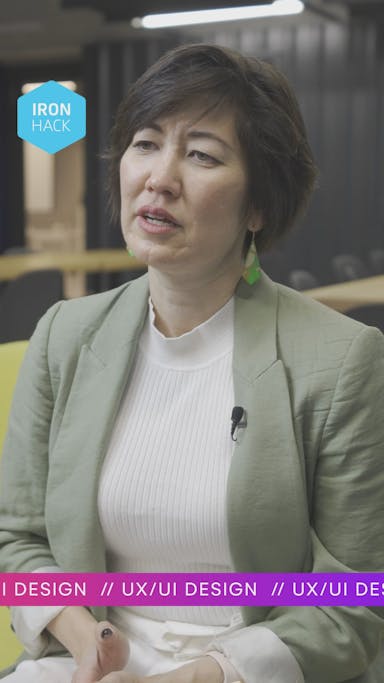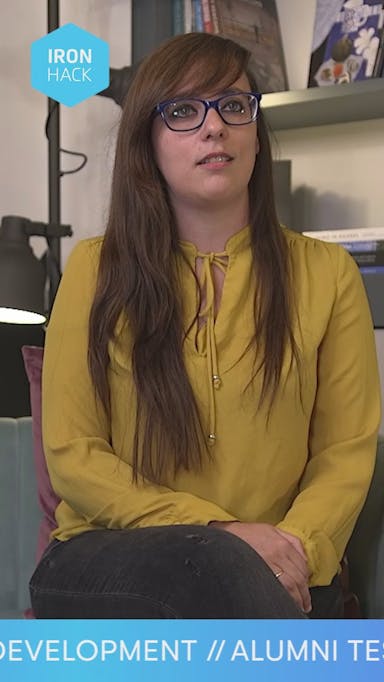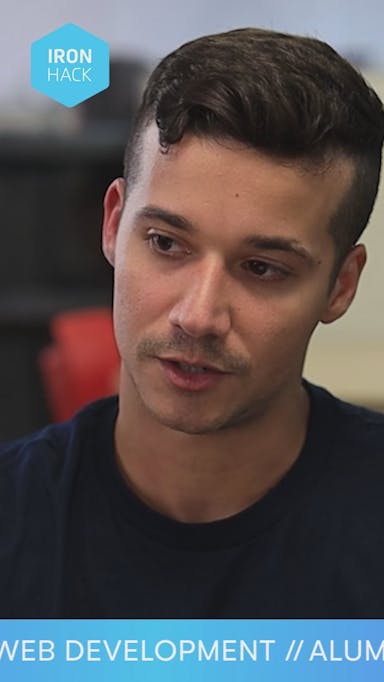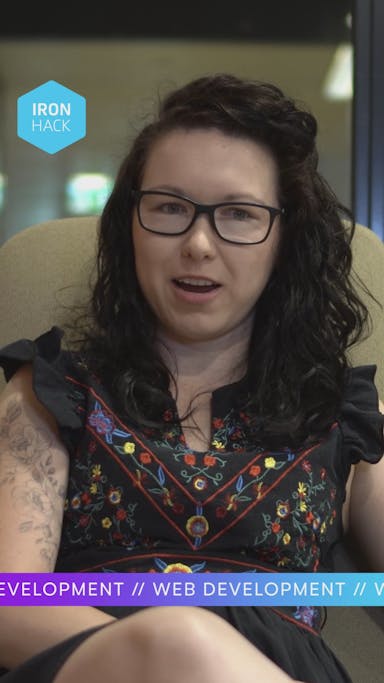Meet our alumni and follow their journeys into tech
Learn more about the Ironhack experience from those who know it best...our brilliant alumni!

Selena
UX/UI Designer

Irene
Apprentice Software Engineer

Michael
Software Engineer

Monika
Frontend Developer